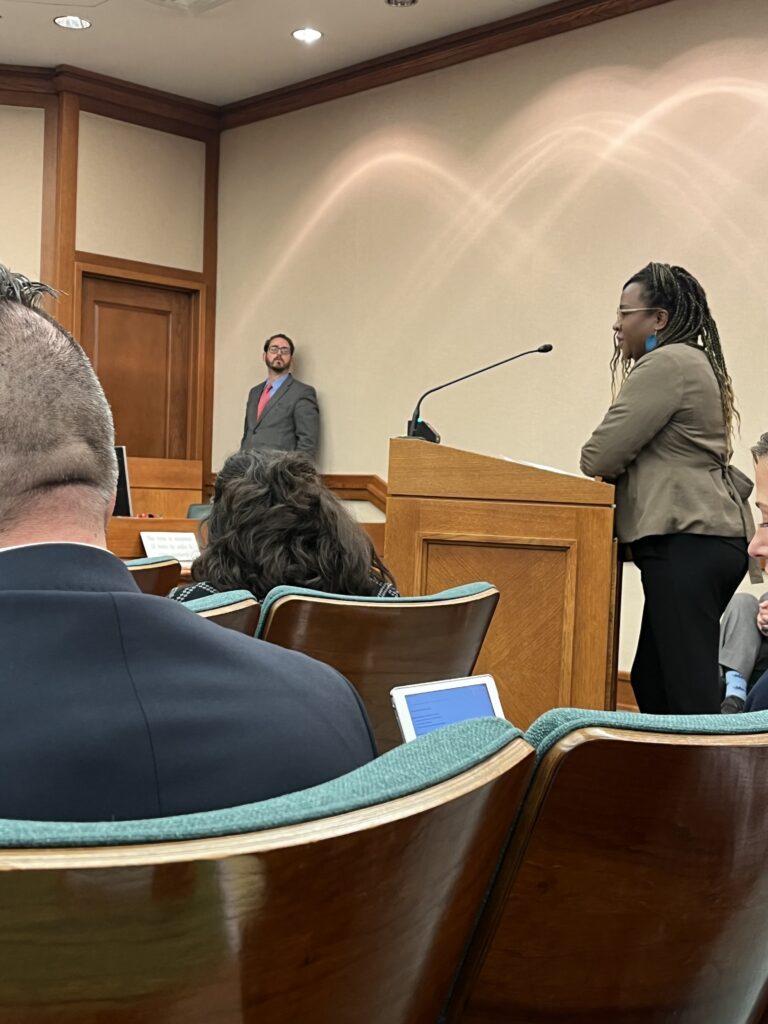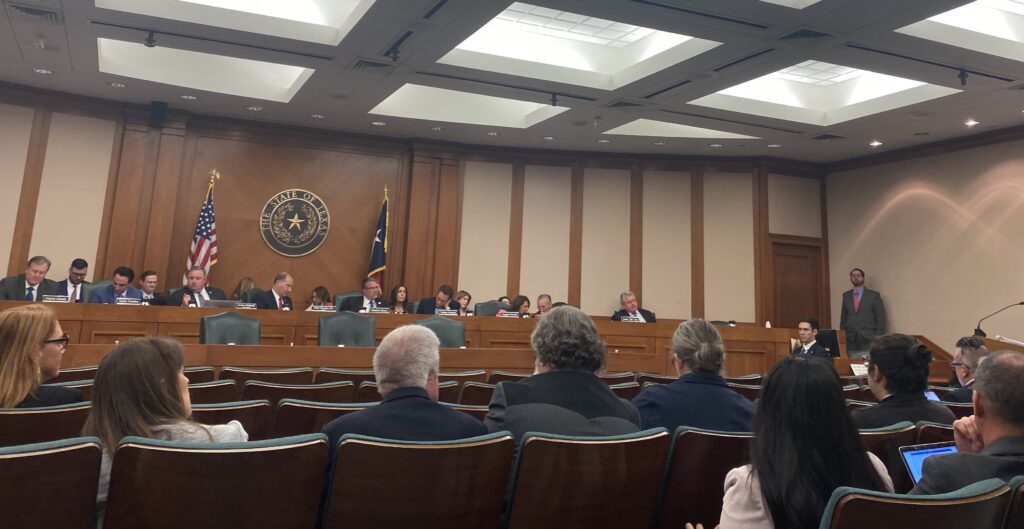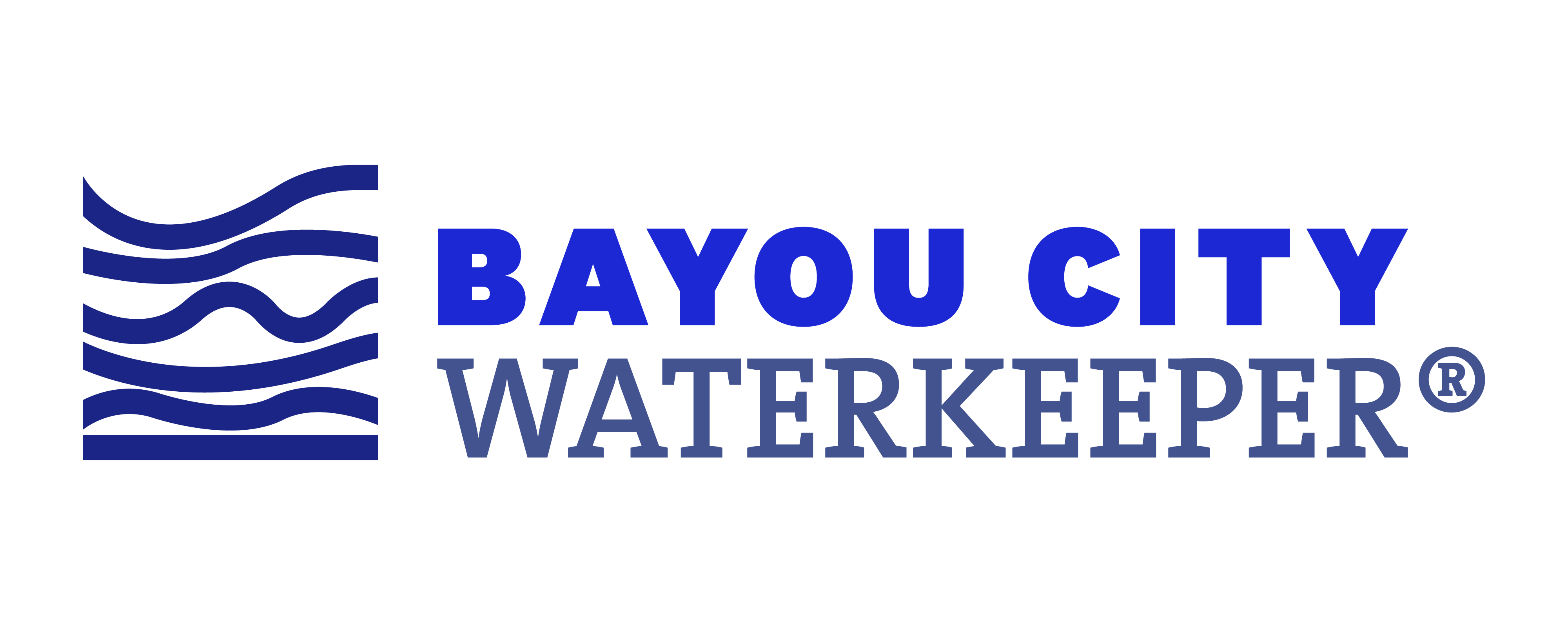Bayou City Waterkeeper — along with other non-profit organizations working toward an equitable, sustainable and resilient water future for Texas — submitted comments on the Sunset Staff Report for the Texas Water Development Board (TWDB). A few of these organizations also provided testimony in-person to the the Sunset Advisory Commission regarding the Report. Executive Director Ayanna Jolivet Mccloud shared this testimony.

Chairman, Vice Chairman, and members of the Commission, I’m Ayanna Jolivet Mccloud, and I am the Executive Director of Bayou City Waterkeeper. We use science and law to advocate for water and people in our 10-county watershed in the Houston region. I appreciate the opportunity to speak with you, as now is an opportunity to rethink how we center diverse community stakeholders and needs in water infrastructure funds.
In regards to flood planning and financing, we believe that TWDB’s current implementation of SB7 and SB8 (86R) can be made more equitable and provide greater incentives for nature-based projects and prioritize projects in economically distressed and underserved populations. We ask that significant socioeconomic factors be considered in the prioritization for projects across the board, particularly for watershed flood protection planning in counties where Annual Median Household Income (AMHI) is less than or equal to 85% of the state-wide AMHI. In addition, we ask that the TWDB prioritizes additional community outreach and education to impacted communities on the regional flood planning process.
We encourage TWDB to evaluate its definition of Disadvantaged Community and Affordability Criteria in the DWSRF and CWSRF, use the guidance provided by the EPA and other states and stakeholders, and amend as necessary to ensure these funds are reaching communities most in need. While the current definitions may identify more need for disadvantaged communities than available funds, this does not necessarily mean that they are identifying the right communities that are most in need. In Houston, we have communities who have significant need for these funds as seen in open drainage ditches, sewage and flood infrastructure.
We recommend that the TWDB revisit its proportionality of grants to loans being disbursed and consider full loan forgiveness to remove barriers for disadvantaged communities to access these funds. Additionally, we encourage the TWDB to evaluate its use of technical assistance set-asides in the CWSRF and DWSRF programs, and to increase funds for technical assistance. Thank you.
Here’s more background to help you understand about this process and what’s happening with water infrastructure funds now.

What is the Texas Sunset Review?
Texas state agencies are subject to a review every twelve years. This process, called a Sunset Review, assesses an agency’s mission, performance and operations, with suggestions for improvement, which is then published in a staff report reviewed by the Sunset Advisory Commission. This report is released to the public, and the public can provide comments and testimony in response to the report. The Sunset Advisory Commission will look at the Sunset report and decide on which recommendations will be included in the Sunset bill, that will be proposed to the legislature.
What does the Texas Water Development Board do?
The TWDB gives communities funding for water supply, wastewater and flooding projects; prepares the state water and flood plans; and develops and provides data to support water and flood management.
What is happening with federal water infrastructure funds?
The Bipartisan Infrastructure Law (BIL, formally the Infrastructure Investment and Jobs Act) provides the single largest investment in water infrastructure in the nation’s history. With these funds there is also an increased investment in disadvantaged communities as detailed by this EPA memo. Of the $50 billion allocated to water infrastructure nationally, $2.9 Billion in new federal funds for the Clean Water and Drinking Water State Revolving Funds (CWSRF and DWSRF, or SRFs) is slated to come to Texas via the BIL through TWDB over the next five years.
***
Using science and law, Bayou City Waterkeeper works with communities affected by water pollution and flooding across greater Houston to restore our natural systems, achieve equitable policy solutions, and advance systematic change to benefit all who live within the Lower Galveston Bay watershed. Through the Clean Water Act, we hold polluters accountable and protect the water that flows through our bayous, creeks, wetlands, and neighborhoods into our coastal bays.
